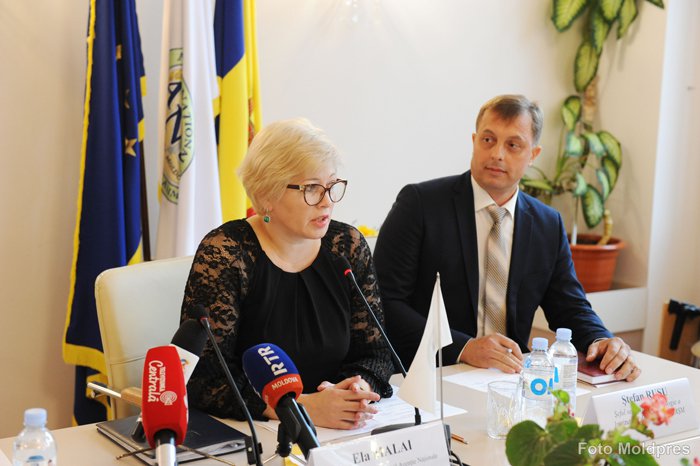Moldovan food safety agency says non-conforming products discovered in more social institutions
14:01 | 24.10.2019 Category: Social
Chisinau, 24 October /MOLDPRES/ - The National Food Safety Agency (ANSA) has identified a string of infringements as to the supply of social institutions with food products, especially frozen fish. The infringements were considered at a today’s meeting held by ANSA, with the participation on the authorities in charge of the process, as well as of economic agents importers.
As a result of Agency’s controls, decision-makers found out infringements both on behalf of suppliers and on behalf of managers of the institutions or people in charge of receiving the food products subsequently used in nourishment. According to ANSA specialists, to a great extent, these infringements deal with the providing of food products without origin acts, with incomplete label, with the change of the organoleptic indexes (colour, smell) and the water’s quality in the product higher than the admissible norm, presence of food products with expired validity term, as well as the presence of frozen fish hit by parasites.
“Following 633 controls made on the period 11-22 October, inspectors of the territorial subdivisions for food safety discovered over 250 kg of non-conforming fish and about 150 kg of other non-conforming goods, more than 100 eggs with expired validity term. As a result, needed measures were taken, within the legal provisions; yet, this does not mean that the problem of non-conforming products has disappeared,” the leadership of the National Food Safety Agency informed.
ANSA boosted its controls in public institutions after, in early October, Prime Minister Maia Sandu informed that, on the last period, 73 consignments of non-conforming fish had been imported to Moldova. Although the goods were to be destroyed, they were brought to markets from Moldova and even delivered to schools, hospitals and penitentiaries.
The non-conformities were discovered, after the PM’s Control Corps, in cooperation with the police, had initiated verifications at the National Food Safety Agency and Republican Veterinary Diagnostic Centre. Following the verifications, decision-makers established that 73 out of the 124 batches of fish imported to Moldova on the period 20 August - 4 October 2019 had negative laboratory results; in particular, it is about infested fish.
At the today’s meeting held by ANSA, the importers of food products, especially of frozen fish, said that this product cannot be fully checked as to the presence of parasites, as practically all the sea or ocean fish is infested and the process cannot be monitored.
At the same time, specialists of the competent laboratories said that certain norms should be which would allow consuming these goods, without danger for people’s health; yet, this detail is unclear in this situation.
Attending the meeting, a state secretary at the Agriculture, Regional Development and Environment Ministry (MADRM), Alexandru Dubalari, said that the problem of nourishment in public institutions, especially the supply with fish, was quite serious, as it got to be considered at the government. “All decision-taking authorities in charge of the settling of this issue will get involved and we will demand maximum of responsibility on behalf of economic agents dealing with import and placing on market. We have got to the situation that money is priority, although, first of all, the attitude must be changed,” the MADRM official noted.
For her part, the ANSA acting director general, Ela Malai, asked the sides involved to mobilize and look for solutions to get back to normal in this state of things. “At this meeting, everybody had possibility to express their viewpoint and these opinions will be taken into account. We expect accurate norms for the fish’s quality; we will also revise the way samples are collected; we will inform consumers, as well as economic agents, just as the legislation demands, about the issuance of quality certificates. It is important for one not to look for guilty people in this situation, but to join efforts, so that only food products posing no danger to life and health are brought to education institutions, hospitals, asylums, warehouses and food markets, etc.,” the ANSA head said.
According to physicians epidemiologists, some fish helminthes can pose real danger to health and in some cases, even to the human life. They can be contained in the river and sea fish. The nematodes from the Anisakidae family are particularly dangerous. In order not to face unpleasant situations, specialists suggest several rules which must be observed: to avoid the tasting of raw or minced fish during the cooking; to thermally process the fish not less than 30 minutes; before cooking, the big fish should be cut in small portions; fish must be pickled in salt on a period from five days to up to two weeks, depending on the concentration of the saline solution.



